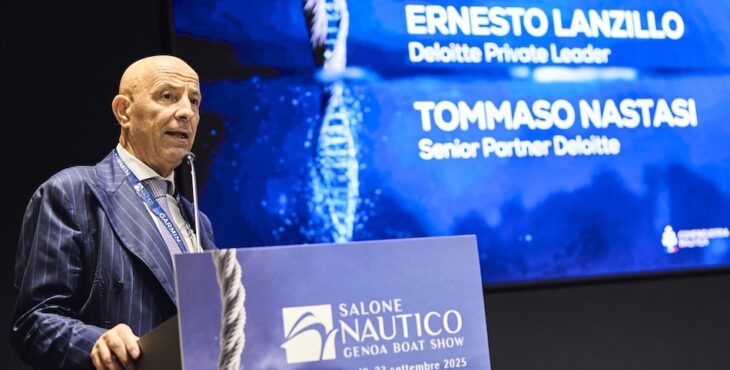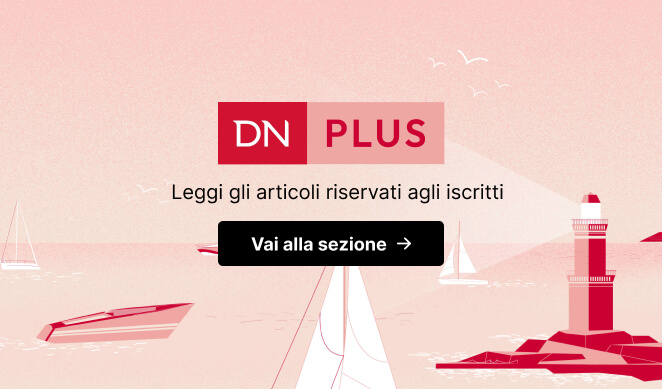Lanzillo (Deloitte) talks to DN: “Made in Italy is an undisputed brand of quality at an international level”
With exports representing 90% of production, the Italian boating industry is focused on innovation, sustainability, and integrated supply chains to consolidate international leadership

With exports representing 90% of production, the Italian boating industry is focused on innovation, sustainability, and integrated supply chains to consolidate international leadership
Italy is leading the global boating market with 54% of superyacht orders and exports representing 90% of the nation’s production. In a growing yet increasingly competitive sectors, Italian businesses are focusing on innovation, sustainability and integrated supply chains to reinforce the value of Made in Italy.
We spoke about this with Ernesto Lanzillo, president of of CdA Deloitte & Touche SpA and Deloitte Private Leader DCM, who, in this exclusive interview provided us with a strategic vision on the challenges and opportunities for the Italian boating industry.
According to the report by Deloitte-Confindustria Nautica, Italy is the world leader in exports and holds 54% of the orders in the superyacht segment. What reflections can we make on this data and what operative incentives do you suggest to further reinforce this strong position?
“International appreciation for Italian boating highlights the strength of our design and the manufacturing skills of the shipyards, supported by an industrial ecosystem that ranges from component suppliers to designer, local districts and international sales networks. Reinforcing our integrated supply chain, from design to after-sales, is a fundamental step to guarantee competitiveness on the international market The challenge now is double: consolidate our leadership in mature markets and, at the same time, expand our presence in new geographical areas.
The future comes through three decisive incentives: continuing to invest in innovation, promoting the excellence of the semi-custom and further reinforcing the value of Italian production. This could lead to a positive spillover effect on all ancillary industries, consolidating boating as integrated ambassador of Italian style around the world. In preparation for this development and the use of the three strategic incentives above, is the need for all small and mid-sized enterprise to create businesses that can support investments for the creation of winning strategies. The granularity of the supply chain and the boating industry, typical of Italian industry, while currently capable of capitalising on ‘beautiful and well-made’ artistry, does not allow smaller enterprise to grow in a competitive context and market expectations cannot overlook access to investments and credit that mid-large size enterprise has.”
The global market for shipbuilding reached 34.8 billion euros in 2023 (+7.3%), and expected to stabilise in 2024 with positive performance in the premium and large yacht segments (+5/10%). How can Italian businesses capitalise on these trends, promoting their distinct skills?
“As I already anticipated, with a continued investment in innovation, essential to preserve and reinforce the position of design, while fully promoting the excellence of semi-custom yachts, which represent a distinctive trait of Italian production, and with the consolidation of the value of Made in Italy, as a quality brand recognised around the world. Particular attention needs to be paid to the preferences of the new generation, the clients of the future who are already impacting, with their demands, the current market, all centred around sustainable products and processes and the use of advanced technology on the vessels; these are the elements that will make a difference for premium brands and the value chain represented by small artisans: being able to respond, today, to the current and future demands will not only contribute to reinforcing the global market position we already have, but will expand it further with benefits for the entire ecosystem surrounding the boating industry.”
The report indicates a slow-down for 2025, followed by a recovery in 2026-2027. What strategic and operative strategies should be used?
“The resilience of the industry comes through integrating products and services, creating a bundle that can follow along with the client throughout the yacht’s entire life cycle and supplying an extended product that is not marketed exclusively on price but on the quality of ‘integrated’ product and services. To this is added a complete value proposition, enhanced with solutions for personalisation, sustainability and digitalisation. A central role will also be played by operations, with an efficient supply and production chain that guarantees quality within specified time frames. Lastly, it is crucial that we dedicate ourselves to new markets, so as to balance the effects of the tariffs and the changes in the American market, which is currently our main export and reinforce Italian leadership on a global scale.”
In 2023 the superyacht segment recorded the highest sales portfolio since 2009 (696 units), with a profitability of 15% and a strong margin. How does Deloitte interpret this dynamism and what advanced strategies do you suggest to support excellence and efficiency in this crucial segment?
“Dynamism in the superyacht segment reflects the skills of Italian shipyards in uniting design excellence with industrial robustness. To consolidate this competitive advantage it is important to focus on innovation, increasing networking between shipyards, suppliers and research centres to accelerate technological and sustainable development. At the same time, we need to reinforce our presence in custom builds, a high added value segment that represents a global showcase for Made in Italy, marrying unique style and operative efficiency.”
The report highlights the uncertainty caused by US tariffs, that mostly impact small and mid-sized vessels. What approach does Deloitte suggest to mitigate these risks, diversify markets and preserve the competitiveness of the Italian boating industry?
“In a context with continual uncertainty in trade, the priority is to reinforce our skills in differentiation: offering products that are increasingly recognisable for their quality, design and innovation, justifying the premium price even in markets with tariffs. Alongside this is targeted marketing, that promote the uniqueness of Made in Italy and strengthen the relationship with clients, curating a 360-degree experience. In parallel, geographical diversification is fundamental for balancing risks and guaranteeing competitive stability in the long run, in addition to creating new alliances with local operators in emerging markets that can help take advantage of all opportunities allowed by customs regulations in countries of interest.”




